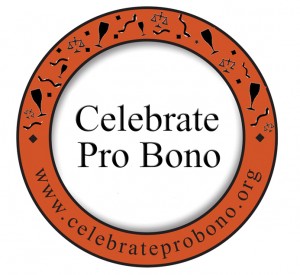 When I opened my own office shortly after law school, I had an abundance of free time and a lack of clients or experience. Once or twice a week, I volunteered the day at a legal clinic for women. The clients had mostly domestic violence and other family law issues. When I began, I knew very little about family law but I quickly learned. I was able to use those skills in my private practice.
When I opened my own office shortly after law school, I had an abundance of free time and a lack of clients or experience. Once or twice a week, I volunteered the day at a legal clinic for women. The clients had mostly domestic violence and other family law issues. When I began, I knew very little about family law but I quickly learned. I was able to use those skills in my private practice.
Last week was “pro bono” week. This article presents the “Top 5 Reasons to Do Pro Bono Work“. I’m sure I can lay claim to all five. The article misses a reason, however. My pro bono work helped me to build my practice.
The clinic I worked at allowed us to offer our paid services to the clients. Granted, most of them had little or no money, but I did get some paying work. And little or nothing was definitely better than nothing. It allowed my nascent practice to stay afloat, which allowed me to continue to volunteer.
I also got some referrals from those clients. Yes, most of them were in the same financial shape as the clients who referred them, but not all of them.
I was also able to network with the administrators of the clinic, their benefactors, and the other attorneys who volunteered. I met people who introduced me to others and as my network grew, so did my practice.
I’m not ashamed to admit that growing my practice was one of the reasons I volunteered at the legal clinic. I don’t think any of the hundreds of clients I saw for free or almost free would have any objections.









